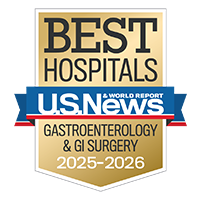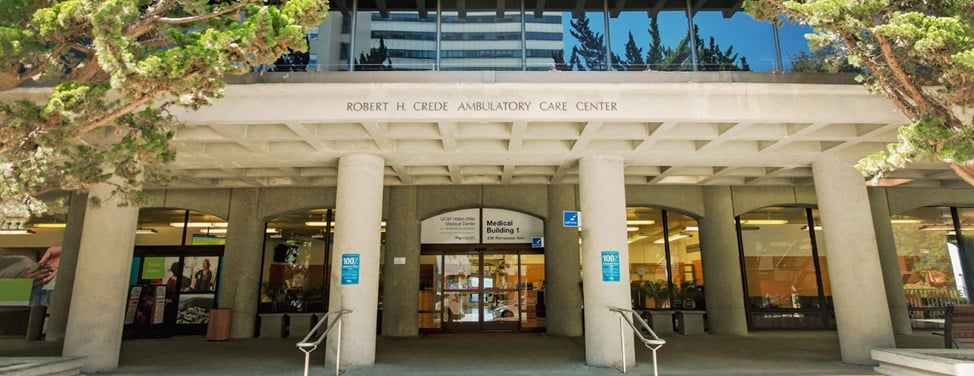
Complex Abdominal Surgery Program
The UCSF Complex Abdominal Surgery Program specializes in state-of-the-art surgical repair and rehabilitation for patients with the most complicated abdominal conditions. These include severe acute pancreatitis, enterocutaneous fistula (ECF) and complex ventral hernia.
Our team routinely performs complex abdominal procedures that are not available at many other medical centers. For example, UCSF is one of only a few medical centers in the nation performing islet autotransplantation to lower the risk of diabetes in patients who need the pancreas removed. We also offer the latest treatments for complex ventral hernias (a condition in which tissues are pushing through the abdominal wall), such as the preoperative progressive pneumoperitoneum technique for particularly large ventral hernias.
Patients with complex abdominal conditions often require long-term care from experts in many specialties. For example, patients with acute pancreatitis have an average hospital stay of two months, followed by a lengthy recovery period. Those with enterocutaneous fistulas often need specialized wound care, nutritional rehabilitation and physical rehabilitation.
In addition to surgeons, our team includes experts in nursing, nutrition, intensive care medicine, wound care, plastic surgery, pharmacology and infectious disease. Our extensive experience ensures that each patient receives the best possible care at each stage of treatment.
Our Outcomes
Our patient outcomes far surpass national averages. Patients with complex ventral hernias treated at UCSF have a recurrence rate of approximately 18 percent, compared to a national recurrence rate of 30 to 40 percent. The mortality rate for patients with severe acute pancreatitis treated at UCSF is about 7 percent, compared to a 25 to 40 percent mortality rate nationally.
Our Services
Gastrointestinal surgery – Our gastrointestinal surgeons are known for their ability to treat high-risk patients, including those routinely turned down for surgery at other medical centers.
Physical rehabilitation – Physical therapists work to reduce the risk of postoperative complications by ensuring that patients become active as soon as possible following procedures. These experts also provide education to patients and their caregivers on abdominal incisions and train them on movement techniques to reduce discomfort.
Long-term care – Many patients require care for six to nine months. Our three-step approach includes an initial evaluation, treatment optimization and management.
Wound care – Our team of wound-care specialists is trained in advanced techniques, customizing each treatment plan to the patient's individual needs.
Plastic surgery – Following surgery for complex abdominal conditions, our plastic surgeons restore the integrity of all parts of the abdominal wall.
Innovations and Research
Severe acute pancreatitis – UCSF surgeons have developed and perform innovative, evidence-based surgical techniques for blunt necrosectomy (removal of tissue that has died) and step-up necrosectomy (a minimally invasive approach). Together with state-of-the-art management techniques, these procedures result in better patient outcomes.
Enterocutaneous fistulas (ECF) – Patients with enterocutaneous fistulas particularly benefit from a team approach, with general surgeons, nurses, enterostomal therapists, social workers and nutritionists who are all familiar with the complex problems that often occur in ECF.
Complex ventral hernias – While UCSF researchers work to further our understanding of complex ventral hernias, our general surgery team has expertise in the full range of therapeutic options. General and plastic surgeons work closely to optimize reconstruction of the abdominal wall.
Our locations
Our team
Awards & recognition
-

Among the top hospitals in the nation
-

Best in Northern California for gastroenterology & GI surgery
Clinical trials
Support services
Plan your visit
What to Bring
- Photo I.D.
- Health insurance card
- Insurance authorization, if required
- Doctor's referral, if required
- Recent test results related to your condition
- List of your medications, including dosages, plus any you're allergic to
- List of questions you may have
- Device or paper for taking notes























